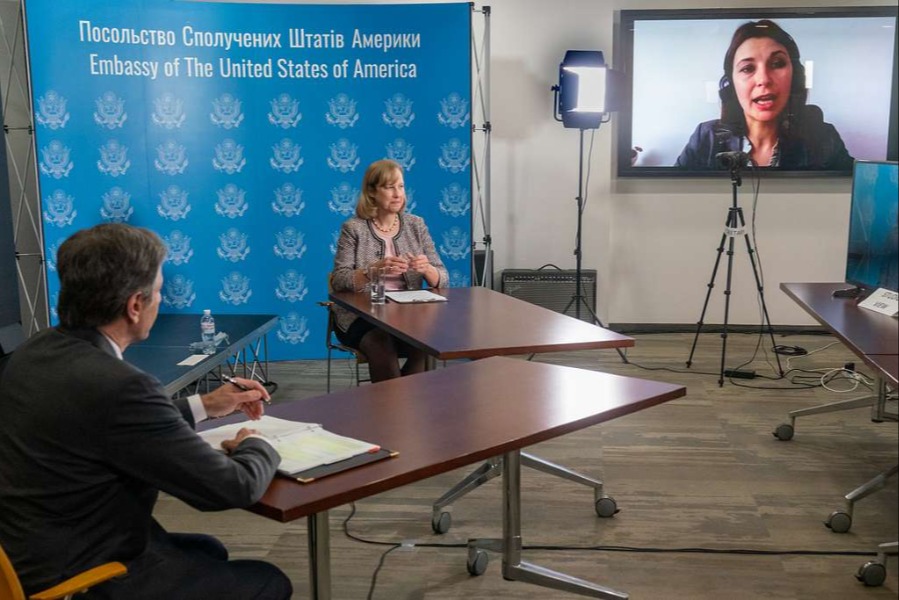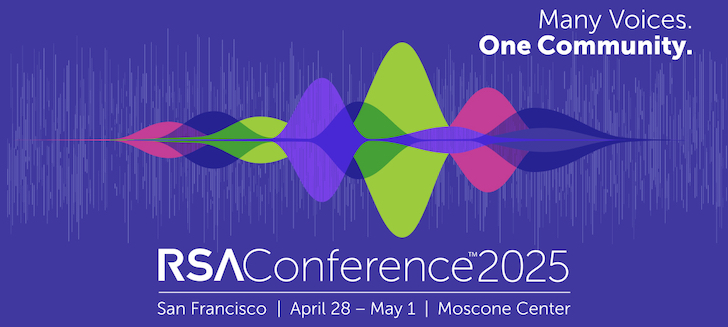Economic sanctions can be an effective tool against corrupt actors. Intensifying their use can benefit affected populations and U.S. interests.

The great debate over sanctions is whether they “work,” given their costs, which can be found in lost economic activity, unintended consequences, or the long-term erosion of a country’s economic competitiveness. Sanctions on corrupt actors frequently represent an exception to these critiques. They play an essential role in promoting responsible investment and helping to level playing fields in developing economies. Still, sanctions remain underinvested in by the United States, European Union, and other Group of Seven (G7) partner governments. This should change.
The principal vehicle for corruption-focused economic sanctions is the Global Magnitsky Act and associated executive order, Executive Order 13818, which result in asset freezes (and by extension, a freezing out from the U.S. financial system) and visa restrictions. Unlike with other sanctions regimes, corruption-focused sanctions have substantial advantages. First, they are highly targetable and can be used to isolate individuals and entities precisely in response to their illicit behavior.
Second, they inflict pain on those engaged in corruption in a way that they uniquely appreciate: taking away, or at least significantly restricting, their wallets. When paired with travel bans, asset freezes on corrupt officials and their networks directly prevent them from using their ill-gotten gains, improving the chances of restitution to the victims of corruption and deterring others from taking similar risks. Moreover, by taking away bad actors’ access to funds, corruption sanctions can prevent them from being able to engage in further acts of corruption.
The United States and a small number of international partners have implemented corruption-focused sanctions against international targets and seen positive results. In Paraguay, for example, the United States implemented a series of anti-corruption-focused sanctions targeting both senior and lower-level political figures that imposed costs on those bad actors, raised the profile of the issue in Paraguay, and led to President Santiago Peña’s promulgation of a transparency-focused plan to improve governance. Likewise, the United States has expanded its sanctions against corrupt actors in the Western Balkans and Eastern Europe to strengthen the hand of reformers and to make it harder for illicit actors to operate. Much work remains, as it does in most countries, but sanctions have played a part in changing the calculus.
Third, corruption sanctions are easy to explain—even if the crimes they are meant to address are arcane—and contribute to a sense of justice, especially to the citizens of countries where the courts and laws are often manipulated and abused. Indeed, removing corrupt actors can help local populations by ensuring that capital and revenue returns to the citizens rather than being siphoned to kleptocrats. The impact in Guatemala, for example, has been direct. A series of U.S. actions in 2023 helped elevate the agenda of the current Guatemalan president and fight corruption. These positive effects, even if incomplete and still under development (and facing resistance from the entrenched forces), are the direct result of sanctions that helped connect the population to the potential for fighting corruption.
Fourth, corruption sanctions help to create a clean international business environment and enforceable rules of the road for investors—something the United States has historically supported. These conditions also give the United States an advantage when its adversaries look to corruption—such as bribery or influence peddling and procurement manipulation—to provide strategic support in their business ventures around the world. In recent years, anti-corruption sanctions focused on Angola, for instance, have been one piece of the policy tools puzzle for the United States and allies that complemented local action. These actions also eventually led to President Biden’s recent trip to the country, as well as an additional $600 million investment in the Lobito Corridor project, which would link infrastructure in Angola, Zambia, and the Democratic Republic of the Congo and could set the stage for a different approach to minerals investment across the developing world.
As such, it is surprising that corruption sanctions are not used more frequently or robustly. The U.S. Treasury Department’s last designation package on International Anti-Corruption Day—Dec. 9, 2024—was valuable. The package targeted an infamous gold smuggling and money laundering operation rooted in the looting of Zimbabwe but with tentacles extending across the globe and supply chain, affecting the downstream jewelry and banking sectors through their need to conduct stronger due diligence on their gold sourcing. We know from personal experience that the infrequent use of corruption-focused sanctions is not because of disinterest: From our time in government, we know that the Treasury and State Departments continue to investigate cases for designations and have shown over the years that they will act when they can. But sanctions investigations require resources and difficult choices about where and what to prioritize, especially at a time in which sanctions are a preferred tool to respond to Russian aggression, Iran, terrorism, and other global ills. They also require decision-makers to be willing to target high-level actors, including in otherwise friendly governments, who are making responsible investment challenging and, in the process, often promoting policies that run counter to U.S. interests.
Moreover, existing legislation and executive orders concerning corruption sanctions can be limiting. As noted above, the current standard is the Global Magnitsky Act and associated executive order, which authorize the use of sanctions but in ways that can render making cases difficult. This is especially the case with corruption issues such as state capture, how to target the enablers of corruption, and non-financial quid pro quos, where the facts of the cases complicate the development of sufficient evidentiary materials to permit the use of sanctions under current law.
Another difficulty? Corrupt actors are smart. They infrequently announce what they’re doing and know that investigators “follow the money.” They have time, resources, and knowledge of far too many legal loopholes in financial systems around the world to utilize.
What’s more, corruption sanctions remain a subject of ambiguous interest internationally. The United States, United Kingdom, Australia, and Canada all have corruption sanctions on the books, but key allies—such as the European Union, Singapore, and Japan—do not. Absent the inclusion of major financial centers, corruption sanctions are weaker than they might be because key banks and financial institutions are not necessarily conducting the same level of due diligence or screening against corrupt networks. These gaps also mean there is a lack of coordinated institutional support that could come from greater international collaboration.
These problems have solutions.
First, existing executive orders concerning corruption (and especially Executive Order 13818, the Global Magnitsky Act’s implementing order) could be strengthened to provide further clarity as to the sorts of bad acts that could prompt the use of sanctions as well as who is covered. For example, Executive Order 13818 could be amended or superseded to clarify that any form of service (legal, financial, or otherwise) that enables corruption would fall within its sanctionable provisions. The order could be expanded to cover individuals who are not government officials but serve similar roles, such as the leaders of political parties; the expansion of sanctions covering the Western Balkans on Jan. 8 showed one way that entities like political parties could be targeted if they engage in corruption. It could likewise be amended to address state capture phenomena, which may or may not involve the overt provision of bribes, and quid pro quo arrangements that do not involve the exchange of money but rather power and position. Beyond their material value, these expansions would be especially important to signal that there are risks to aiding and abetting corruption, even if prosecutions are not immediately possible. Congress could also contemplate parallel changes to the Global Magnitsky Act and could tie its requirements to the report now required under the Combatting Global Corruption Act. This law mandates the State Department to prepare two annual reports for Congress that will identify jurisdictions making progress and those that are not, and Congress could insist on executive sanctions action in cases where corruption backsliding is identified.
Second, the United States should secure greater international support and contributions to anti-corruption sanctions. It could start by proposing to the G7 and the EU that they adopt similar anti-corruption measures, perhaps beginning at a lower threshold of supporting sanctions on those being prosecuted for bribery in G7 jurisdictions until their cases are properly adjudicated. The United States should also encourage its partners outside of the G7 and EU to act, even if not through their own measures but rather by cooperating with those adopted by the G7. For example, the United States and G7/EU partners could persuade the United Arab Emirates, Switzerland, Singapore, and other global financial hubs—even regional hubs such as Kenya—to respect designations adopted for corruption purposes by the United States, United Kingdom, Australia, and Canada in their own legislation.
Third, the many sanctions programs that already target those who “undermine democratic processes and institutions” could be unified into a component of the Global Magnitsky Act, given that corruption generally thrives the most in contexts where democracy and the rule of law are challenged. Here, in addition to protecting elections and good governance from the corrosive impact of corruption, perhaps the greatest importance should be assigned to fighting the use of strategic lawsuits against public participation (SLAPPs), whereby the law is weaponized by corrupt actors to cover up their crimes. Journalists, civil society actors, and many others have been increasingly intimidated from reporting on crimes by the threat of having their financial and personal lives ruined through prejudicial lawsuits. The United Kingdom has recently done important work to limit the use of such lawsuits and render them less effective, such as by creating cost protections for members of the media and civil society who are sued by corrupt actors. Creating economic risk for those who utilize SLAPPs would take this work a step further, draining SLAPPs of their strategic value.
Last—and above all else—more resources can be provided and dedicated to the corruption sanctions missions of the State and Treasury Departments. The number of people working on these programs in the U.S. government is a tiny fraction of the number of corrupt actors and their facilitators, and these workers are burdened by the requirements of justice, evidence, and process. Corrupt actors, however, see these requirements as opportunities to be exploited. Providing more resources—financial, legal, and informational—to U.S. government workers can improve their odds of success, respond to the lawsuits that will inevitably come from challenging corrupt actors, and also allow for greater ongoing outreach to, and engagement with, financial institutions and other private-sector actors that are key to the fight.
Anti-corruption has long been a bipartisan priority. The UN Convention Against Corruption was concluded under George W. Bush. The Corporate Transparency Act was signed into law by Donald Trump, as was the Global Magnitsky executive order. The first U.S. strategy to counter corruption was promulgated by Joe Biden. The work of fighting impunity and corruption will continue. The U.S. can and should ensure sanctions play their part.
– Brad Brooks-Rubin, Richard Nephew, Published courtesy of Lawfare.


